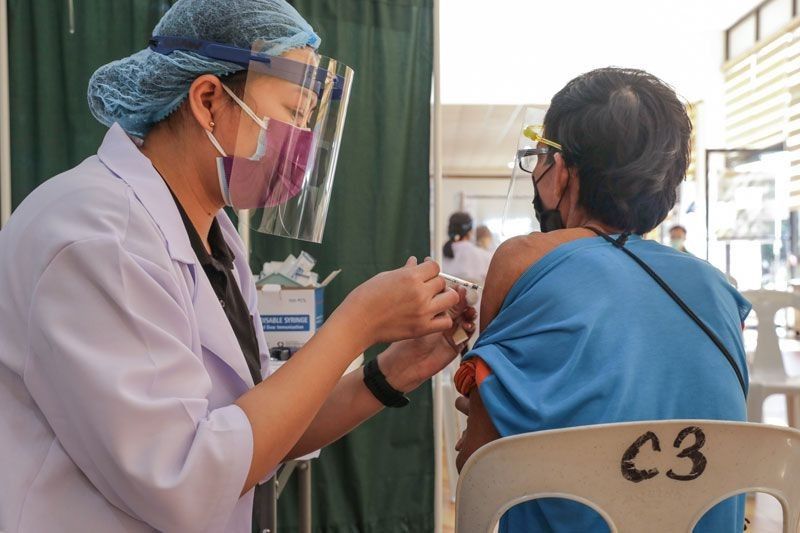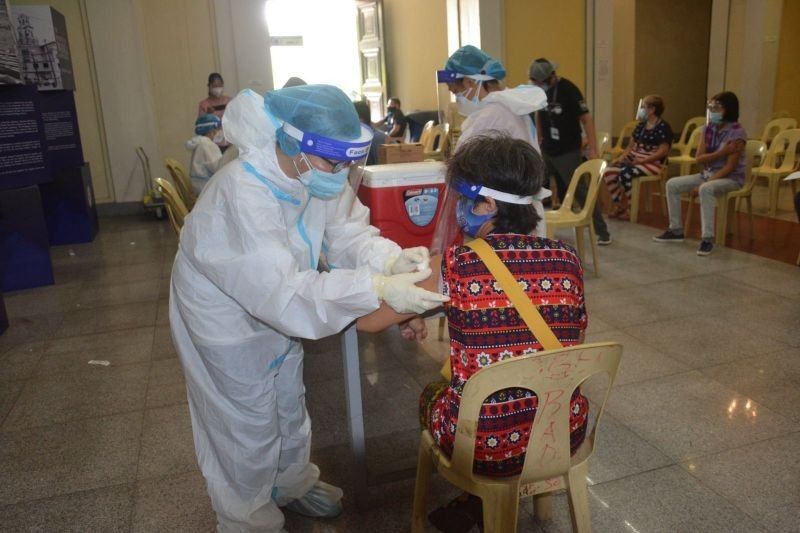Prioritizing senior citizens for COVID-19 vaccines and boosters


The World Health Organization (WHO) recently expressed concern over the low COVID-19 vaccination rate among the elderly in the Philippines.
At a Laging Handa briefing last February 11, Dr. Rajendra Yadav, WHO Acting Country Representative, called on the Philippine government to vaccinate 2.5 million senior citizens against COVID-19, naming Cebu, Negros Occidental, Batangas, Laguna, and Bulacan as among the provinces that still have low vaccination rates for the elderly.
Last year, WHO Philippines also called for accelerated efforts by local government units (LGUs) in vaccinating the elderly, citing only about 25% of the more than eight million senior citizens as having been fully vaccinated (July 2021).
But infectious disease specialist Dr. Remedios Coronel pointed out, family members also have a role to play in ensuring that senior citizens are protected against COVID-19.
In my program, “Pamilya Talk,” Dr. Coronel shared that, “The children or the younger generation should be the ones encouraging our elders to get vaccinated, convincing them that it’s beneficial for their health.”
Ageism—or when you stereotype and discriminate against someone’s age—has been prevalent this pandemic. For instance, some believe that older people shouldn’t be prioritized because their days are already numbered. To show our concern and love for the elderly, the national government has been pushing for local government units (LGUs) to have their house-to-house vaccinations and make it easier for senior citizens to get themselves jabbed.
Comparing our situation at the time of the outbreak two years ago, we can see that the streets are bustling again, businesses are starting to pick-up, and travels, with the right documentation, are already allowed. But we should still be cautious because COVID-19, specifically Omicron, is still a threat to our health especially to our elders. Even though Omicron is relatively milder in terms of symptoms compared to the previous variants, we need to consider that the immune system of people 65 years old and above are weaker, therefore making them more susceptible on getting the virus.
I’m lucky my parents believe in the importance of vaccination. On their own, they check-out the health programs of their local government, including free flu and pneumonia vaccines for their constituents. According to the Centers for Disease Control and Prevention, getting vaccinated prevents critical illness, hospitalization, and death. People 65 years and older, who had been vaccinated against COVID-19, presented a 94% reduced risk of COVID-19 related treatments in hospitals.

Though getting vaccinated against COVID-19 is vital, having a happy and healthy disposition also helps our seniors move forward in their daily lives.
There are still several uncertainties, so it’s important to remain vigilant and not be complacent. Have yourself vaccinated, not only to protect yourself but also to protect the people around you, especially your seniors. If they are having a difficult time deciding if they should get vaccinated for COVID-19, take the time to explain how important it is for their health and show them reading materials from reliable sources as proof.
Our mother, father, and grandparents all took care of us growing up. Now it’s our turn to look after them.
If you wish to know more about COVID-19 and should you have inquiries about the vaccine, you may call these numbers:
- Department of Health—02 894-COVID or 02 894-26843
- For PLDT, SMART, SUN and TnT Subscriber—1555
- Telimed Management Inc.,and Medgate Hotline—02 8 424-1724
- Global TeleHealth, Inc. (KonsultaMD)—02 7 798 8000
--
Watch Pamilya Talk on Facebook, YouTube, and Kumu (@JingCastaneda – 4:15-5:00pm Monday & Wednesday). You can also follow my social media accounts: Instagram, Facebook, YouTube, Twitter, and Kumu. Please share your stories or suggest topics at editorial@jingcastaneda.ph.



















